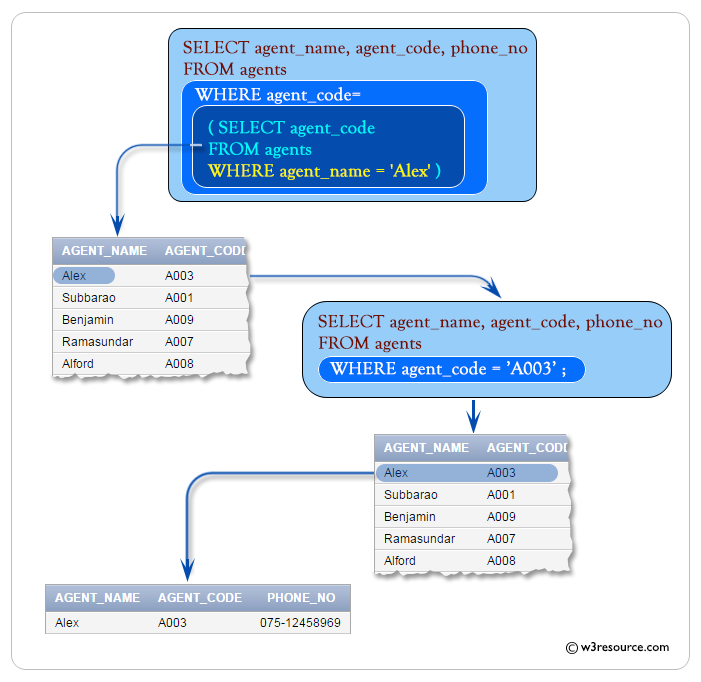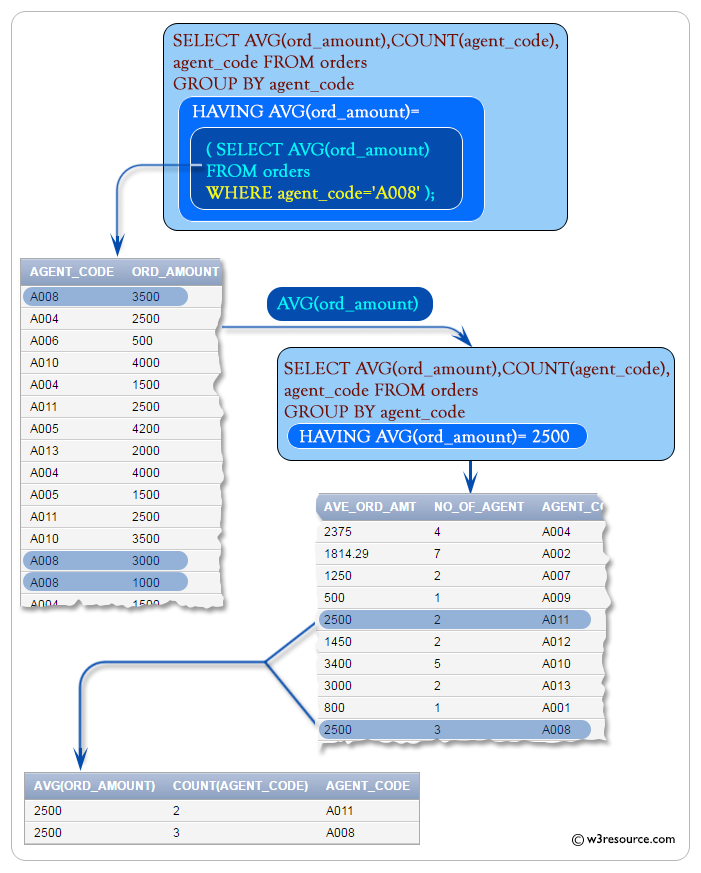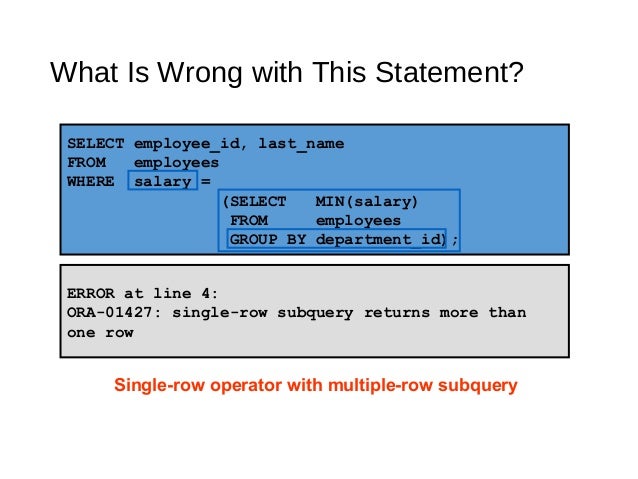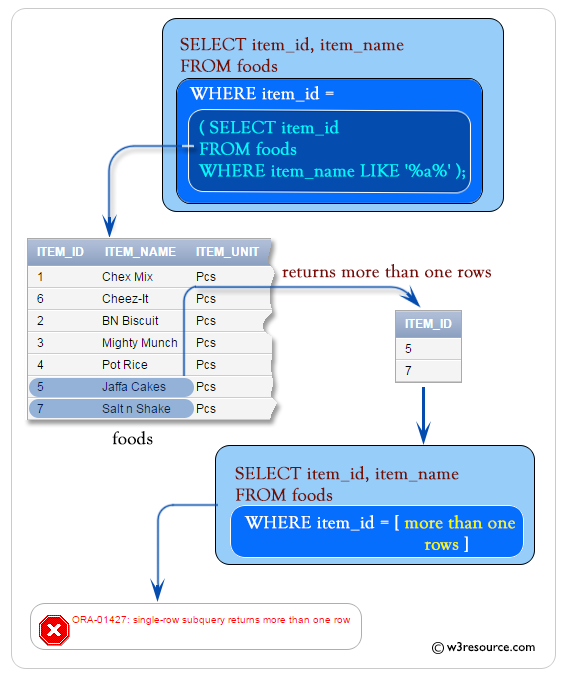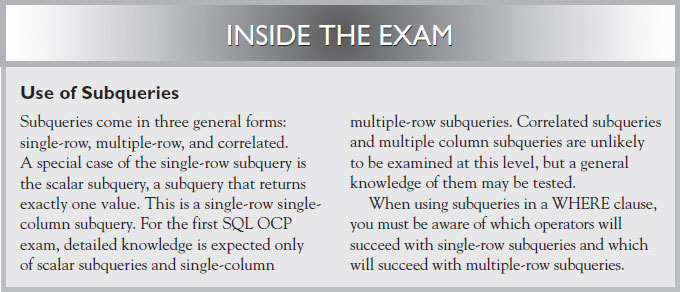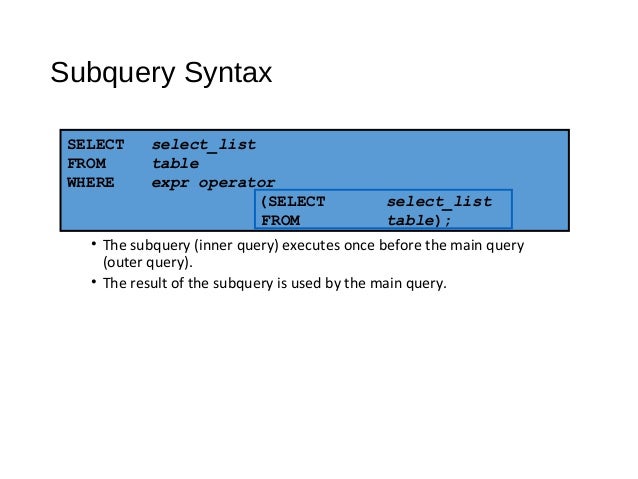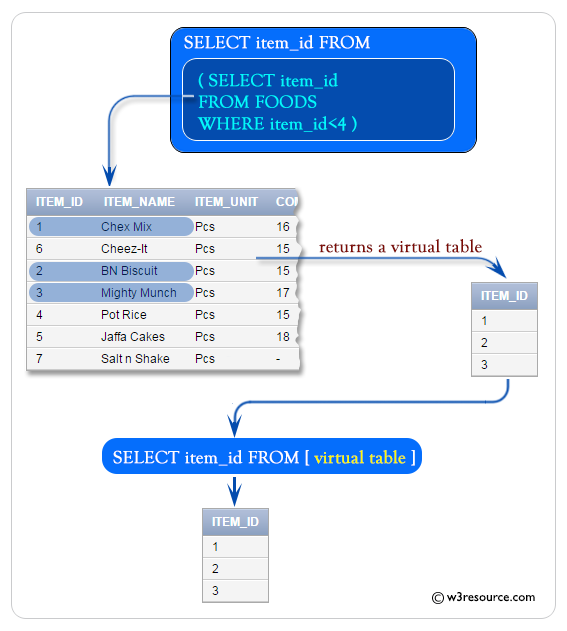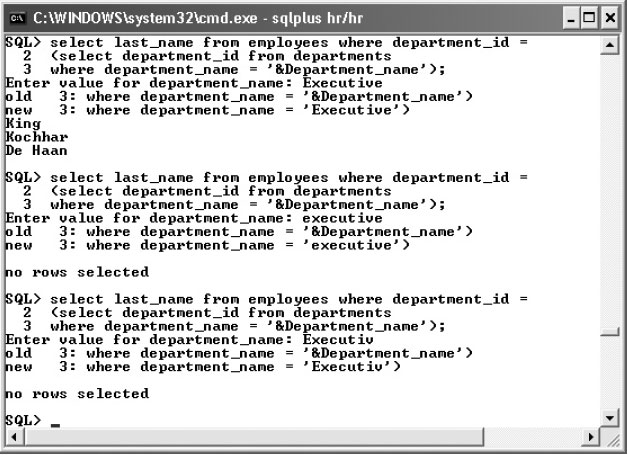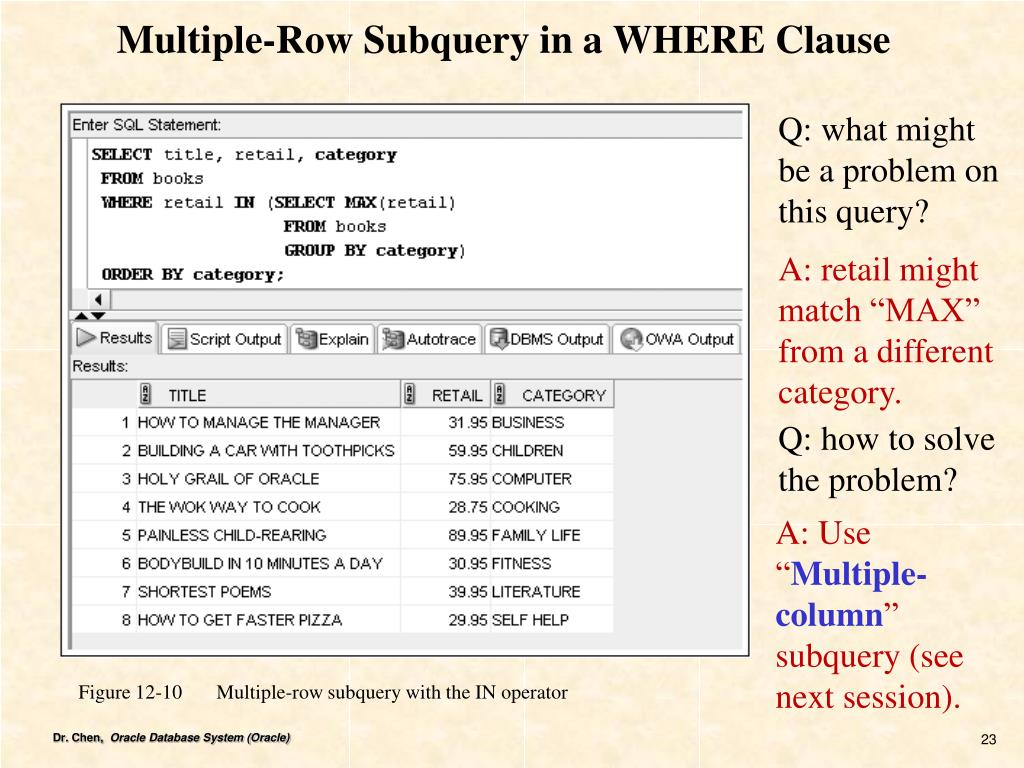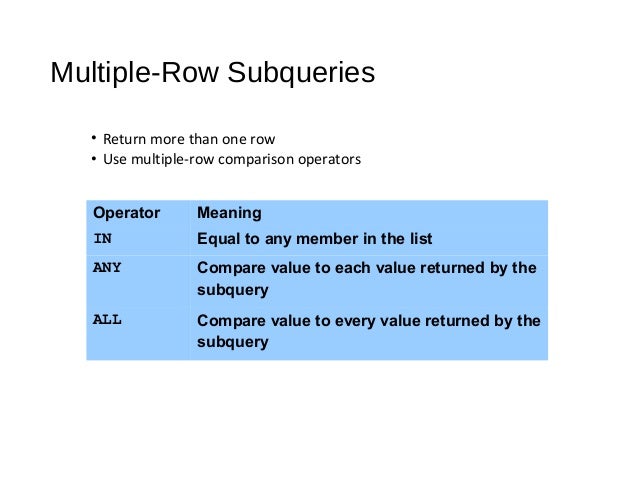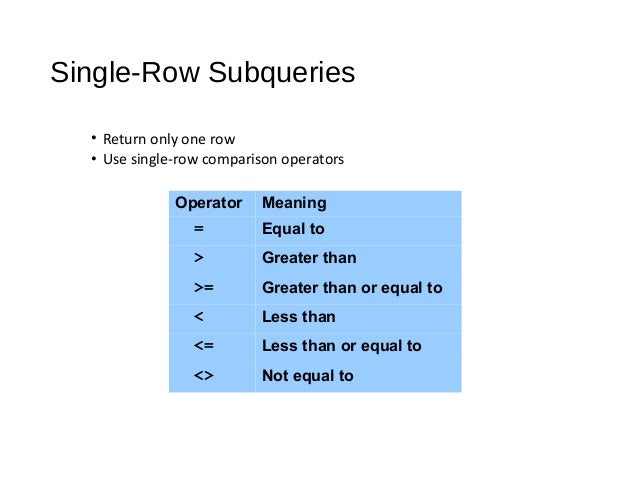What Would Happen If You Attempted To Use A Single Row Operator With A Multiple Row Subquery

Subquery references the wrong table in the where clause.
What would happen if you attempted to use a single row operator with a multiple row subquery. The column contains many different values good cardinality 2. No rows will be selected. Single row subqueries are subqueries used with a comparison operator in a where or having clause. Which operator can be used with a multiple row subquery.
An attempt was made to use the operator binding with an attribute set containing more than one table alias attribute. What would happen if you attempted to use a single row operator with a multiple row subquery. An attempt was made to use an invalid default value or a default that is larger than 100 characters. Single row operator with multiple row subquery what is wrong with this statement.
The column is used often in a sort clause order by 6. Jon seigel may 20 13 at 14 40. If you want to disallow that change in state you have to use a trigger to do it. The column when.
When a multiple row subquery uses the not in all operator if one of the values returned by the inner query is a null value the entire query returns. Subqueries that can return more than one row but only one column to the outer statement are called multiple row subqueries. Mark for review 1 points. This is not permitted.
As far as my understanding goes all of these are comparison operators specifically used for multiple row subqueries. The column is used often in a group by clause 8. A common error with subqueries occurs when more than one row is returned for a single row subquery. The column is used often in a where clause 5.
The value of the column is seldom null 4. I would recommend using both a check constraint and a trigger if those are your requirements. Is this a faulty question or is there something i m missing. All the rows will be selected.
The column is used often when multiple tables are joined together 7. Use a different operator binding. The update statement you mention will succeed as the final state is allowed. Subquery returns more than one row and single row comparison operator is used.
An error would be returned. Your initial requirements were somewhat unclear note. Invalid default value for the attribute cause. You need to create a select statement that contains a multiple row subquery.
For example there are two tables in the sql anywhere sample database contain accounting results data. Multiple row subqueries are subqueries used with an in any or all clause. I understand that the any and all operator require a single row operator i e etc to be used in conjunction however this is not addressed in the question. Nothing it will run without problems.
Correct correct 6. The table is large or it contains many rows 3. In the sql statement in the slide the subquery contains a groupby clause which implies that the subquery will return multiple rows one for each group that it finds.
